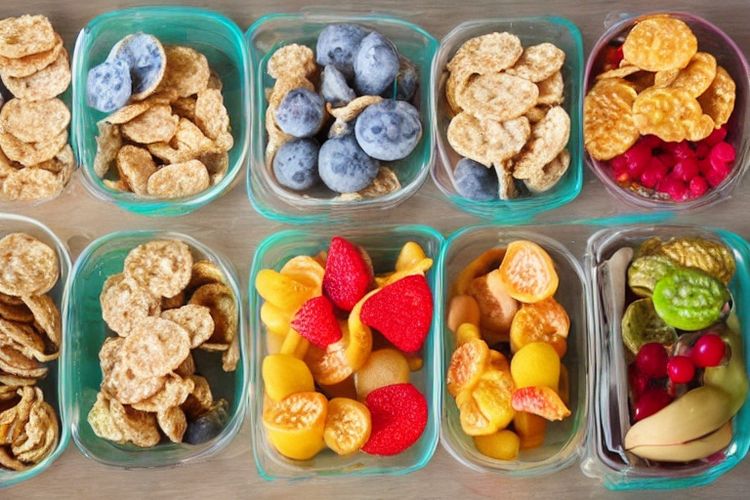Snacking Sensibly: How to Choose Nutrient-Packed Options for Children

Snacking is an important part of a child’s diet, providing them with necessary energy throughout the day. However, it can be all too easy to opt for convenient but nutrient-poor snacks like chips and sweets. As parents, it is crucial to choose nutrient-packed options for our children’s snacks to support their growth and development. Here are some tips for snacking sensibly and selecting nutritious options for your little ones.
1. Choose whole foods: Whole foods are minimally processed and contain essential nutrients for growing bodies. Instead of reaching for processed snacks, opt for fresh fruits, vegetables, whole grains, nuts, and seeds. These options are packed with vitamins, minerals, fiber, and healthy fats that are crucial for a child’s growth and brain development.
2. Be mindful of added sugars: Many snacks marketed towards children are laden with added sugars that can contribute to weight gain and dental cavities. To avoid this, carefully read the ingredient labels of packaged snacks and opt for ones with no or minimal added sugars. Alternatively, make homemade snacks like fruit skewers, yogurt parfaits, or energy balls using natural sweeteners like honey or maple syrup.
3. Incorporate protein: Protein is essential for growing and repairing tissues, and it also helps keep kids feeling full for longer periods. Include protein-rich snacks like Greek yogurt, cheese sticks, hard-boiled eggs, lean deli meats, or nut and seed butters. These options provide an excellent balance of nutrients to keep your child energized throughout the day.
4. Emphasize healthy fats: Healthy fats are crucial for brain development and supporting the absorption of fat-soluble vitamins. Include snacks that are rich in healthy fats like avocados, nuts, seeds, and nut butters. You can also offer foods like hummus or guacamole as dips for vegetables or whole-grain crackers.
5. Keep portion sizes in mind: Snacks are meant to complement meals, not replace them. Be mindful of portion sizes to avoid overeating. A small handful of nuts, a cup of sliced fruits, or a single-serve yogurt are appropriate portion sizes for children. If using packaged snacks, look for pre-portioned options to ensure they’re getting an appropriate amount.
6. Encourage hydration: Snacking goes hand in hand with staying hydrated. Offer water throughout the day, and for additional variety, consider adding slices of fruits or herbs like mint or cucumber to infuse flavor naturally. Avoid sugary drinks like soda or fruit juices, which often contain high amounts of added sugars.
7. Involve children in the selection process: Allowing children to be part of the decision-making process can foster a healthier relationship with food. Take your child grocery shopping and let them choose between different nutrient-packed options. This involvement can help them understand the importance of making healthier choices and create a stronger connection to the food they eat.
In conclusion, snacking sensibly is crucial for ensuring that children receive the necessary nutrients for their growth and development. By selecting whole foods, being mindful of added sugars, incorporating protein and healthy fats, monitoring portion sizes, promoting hydration, and involving children in the decision-making process, parents can make informed choices that support their child’s overall health and well-being. With these tips, parents can feel confident in providing nutrient-packed snacks that will nourish and energize their children throughout the day.



